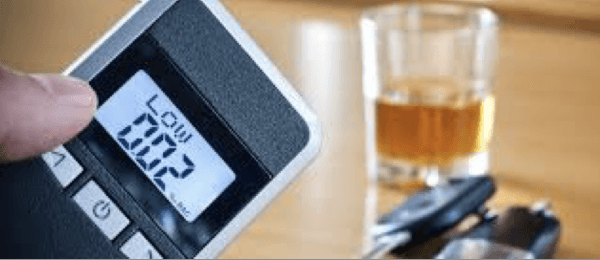What happens if you refuse a chemical breath or blood test after receiving a DUI charge in Pennsylvania?
 When you get your PA drivers license, and drive on PA roadways, you implicitly consent to submit to a blood or breath test when a police officer suspects that you are driving under the influence. This is often referred to as the Implied Consent Law or known as the O’Connell Warnings in Pennsylvania.
When you get your PA drivers license, and drive on PA roadways, you implicitly consent to submit to a blood or breath test when a police officer suspects that you are driving under the influence. This is often referred to as the Implied Consent Law or known as the O’Connell Warnings in Pennsylvania.
Many people may be unaware of having complied to this law when signing their driver’s license. If they are then charged with DUI—Driving Under the Influence of Alcohol or Drugs—they could be confused at the time of arrest or even belligerent from the alcohol or drugs and decide not to submit a blood test or breath sample. In so doing, they break the law of implied consent and automatically lose their license.
If you did not submit a breathalyzer or blood sample, you still have options for getting your license reinstated, however, including a DUI appeal.
Penalties for Refusing a Breathalyzer or Blood Sample
So what happens if you are charged with DUI in Pennsylvania and refuse to give your blood or breath during a police stop?
Under Pennsylvania Code § 1547, the implied consent law states that anyone who is driving in the Commonwealth of Pennsylvania is deemed to have consented to a chemical test to determine blood alcohol content or the presence of a controlled substance if a police officer has reasonable grounds to suspect that the person is driving under the influence.
If you refuse to submit to a test, it can result in a license suspension up to eighteen (18) months as well as a hefty fine.
Additionally, even if you refuse, you can still be prosecuted for a DUI. So, a refusal can result in a civil penalty AND criminal charges.
As stated above, a police officer must be able to show that they had reasonable grounds to believe that you were driving under the influence, and the police officer is required to advise that if you refuse a chemical test that you will face a license suspension.
Appealing a Suspended License—30 days
You have the right to appeal any license suspension as a result of your alleged refusal to submit a breath or blood sample during a DUI charge. If you believe that an officer acted improperly or that you did not refuse, you should contact an experienced Pennsylvania DUI Lawyer immediately.
Once you have received a letter from PennDot stating that your license will be suspended for a chemical test refusal you have only thirty days to file an appeal.
Generally, once the appeal is filed, a supersedes order is filed, allowing you to continue to drive while awaiting your license suspension appeal hearing.
The DUI Appeal Attorneys at Ketchel Law have years of experience successfully winning license suspension appeals and, specifically, chemical test refusal suspension appeals.
CALL KETCHEL LAW TODAY: 412-456-1221 FOR A FREE CONSULTATION
If you are dealing with this issue or any other legal issue that may cause PennDOT to suspend your license, contact our office to discuss your appeal rights immediately.
If you have been charged with DUI in Pennsylvania, Ketchel Law can help build a strong defense for your case and keep fines and sentencing to a minimum.
Learn what happens in Pennsylvania after you have been charged with DUI:
- The Penalties for a DUI Conviction in PA
- Appealing a DUI
- A DUI Arrest and Your License
- DUI Court Process
- The Pennsylvania ARD Program
- DUI Field Sobriety Tests
- Fighting a DUI Charge
- Guide to Hiring a DUI Lawyer
- The Birchfield Ruling
OUR NUMBER ONE GOAL: GETTING YOUR DUI CHARGES DISMISSED.
Our experience and knowledge, along with our strong persuasive skills, allows us to provide you with the best possible defense.
CALL JUSTIN KETCHEL TODAY AT 412-456-1221 FOR A FREE LEGAL CONSULTATION.
If you have been charged with DUI, call us immediately so we can begin working with you on defending your reputation and your future.
